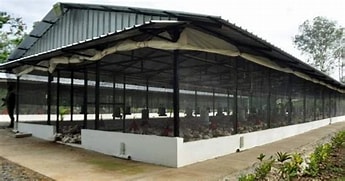Causes of Poultry Diseases and Solutions
Poultry farming is a vital sector of agriculture that provides a significant source of protein for many people worldwide. However, poultry farmers face numerous challenges, particularly diseases that can affect the health and productivity of their flocks. Understanding the various causes of poultry diseases and implementing effective solutions is crucial for maintaining a healthy poultry farm. In this article, we will explore the different causes of poultry disease, their impacts, and practical solutions to mitigate these issues.
Introduction
Poultry diseases can arise from various sources, including infectious agents, environmental factors, and management practices. Each cause presents unique challenges for farmers and can lead to severe consequences if not addressed promptly. This article aims to provide an in-depth look at the different causes of poultry disease and offer actionable solutions to help farmers maintain healthy flocks.

What Are Poultry Diseases?
Poultry diseases are health issues that affect birds raised for meat or eggs. These diseases can be infectious or non-infectious, leading to decreased productivity, increased mortality rates, and economic losses for farmers. Recognizing the symptoms and understanding the underlying causes is essential for effective disease management.
Infectious Diseases
Viral Infections
Viral infections are among the most common causes of poultry diseases. They can spread rapidly through flocks and lead to severe health issues.
Common Viral Diseases
- Newcastle Disease: This highly contagious viral infection affects chickens and other birds, causing respiratory distress, nervous system disorders, and high mortality rates.
- Solution: Vaccination is the most effective way to prevent Newcastle disease. Regular vaccination schedules should be maintained to ensure flock immunity.
- Avian Influenza: Also known as bird flu, this viral infection can affect various bird species and poses a risk to human health.
- Solution: Implementing strict biosecurity measures is crucial. Farmers should monitor their flocks closely for signs of illness and report any suspicious cases to veterinary authorities.
- Infectious Bronchitis: This respiratory disease affects chickens and can lead to reduced egg production and poor growth rates.
- Solution: Vaccination against infectious bronchitis should be part of routine health management in poultry farms.
Bacterial Infections

Bacterial infections can also cause significant health issues in poultry.
Common Bacterial Diseases
- Salmonellosis: Caused by Salmonella bacteria, this disease can lead to severe gastrointestinal illness in birds. Solution: Maintaining proper sanitation practices in poultry housing and ensuring clean water supply can help prevent salmonellosis.
- Colibacillosis: This disease is caused by E. coli bacteria and can lead to respiratory issues and septicemia in young birds. Solution: Proper management practices, including good hygiene and biosecurity measures, are essential for preventing colibacillosis.
- Fowl Cholera: This bacterial infection affects chickens and turkeys, causing sudden death in infected birds. Solution: Vaccination against fowl cholera can help protect flocks from outbreaks.
Parasitic Infections
Parasites can also be a significant cause of disease in poultry.
Common Parasitic Diseases
- Coccidiosis: This intestinal disease caused by protozoan parasites leads to poor growth rates and increased mortality in young birds. Solution: Implementing a coccidiosis prevention program that includes vaccination or medication can help control this disease.
- Mites and Lice: External parasites like mites and lice can cause irritation, feather loss, and decreased productivity. Solution: Regular inspections for external parasites should be conducted, along with appropriate treatments using approved insecticides.
- Worm Infestations: Internal parasites such as roundworms can affect the digestive health of poultry. Solution: Regular deworming schedules should be established based on veterinary recommendations to keep worm infestations under control.
Environmental Factors
Poor Housing Conditions
The environment in which poultry are raised plays a crucial role in their overall health.
Key Environmental Issues
- Overcrowding: High stocking densities can lead to stress, aggression, and increased disease transmission among birds. Solution: Providing adequate space per bird according to welfare guidelines helps reduce stress levels and improve overall flock health.
- Poor Ventilation: Insufficient airflow can lead to respiratory issues due to ammonia buildup from droppings. Solution: Ensuring proper ventilation systems are in place helps maintain air quality within poultry houses.
- Inadequate Lighting: Improper lighting schedules can disrupt natural behaviors such as feeding and laying. Solution: Implementing appropriate lighting programs that mimic natural daylight cycles supports better growth and egg production.
Nutritional Deficiencies
Nutrition plays a vital role in maintaining the health of poultry.
Common Nutritional Issues
- Imbalanced Diets: A lack of essential nutrients can weaken birds’ immune systems, making them more susceptible to diseases. Solution: Providing a balanced diet formulated by a nutritionist ensures that birds receive all necessary vitamins and minerals for optimal health.
- Water Quality: Contaminated or insufficient water supply can lead to dehydration or illness. Solution: Regularly testing water quality and ensuring access to clean water helps maintain hydration levels among birds.
Management Practices
Biosecurity Measures
Implementing strict biosecurity protocols is essential for preventing disease introduction into flocks.
Effective Biosecurity Strategies
- Access Control: Limiting access to poultry houses reduces the risk of disease transmission from humans or other animals. Solution: Establishing visitor protocols that include sanitation procedures helps protect flock health.
- Quarantine Protocols: New birds should be quarantined before introduction into existing flocks to monitor for signs of illness. Solution: Keeping new arrivals separate for at least 30 days allows for observation without risking existing flock health.
- Regular Health Monitoring: Conducting routine check-ups helps identify potential health issues early on. Solution: Keeping detailed records of bird health allows farmers to track changes over time effectively.
Vaccination Programs
Vaccination is a critical component of poultry health management.
Importance of Vaccination
- Preventing Outbreaks: Timely vaccinations protect birds from common diseases that could otherwise devastate populations. Solution: Developing a vaccination schedule tailored to specific flock needs ensures comprehensive protection against prevalent diseases.
- Monitoring Vaccine Efficacy: Regular assessments help determine whether vaccines are providing adequate protection. Solution: Collaborating with veterinarians allows farmers to adjust vaccination strategies based on observed outcomes.
Read This: 5 Common Poultry Diseases and Their Remedies
Conclusion
Poultry farming is fraught with challenges related to diseases that can significantly impact flock health and productivity. Understanding the various causes of poultry diseases—ranging from infectious agents to environmental factors—is crucial for effective management. By implementing practical solutions such as vaccination programs, biosecurity measures, proper nutrition, and environmental controls, farmers can safeguard their flocks against potential outbreaks. Ultimately, proactive management strategies will not only enhance the well-being of the birds but also contribute to the sustainability and profitability of poultry farming as a whole.
Meta Description
Discover the different causes of poultry disease on farms along with effective solutions for prevention and management strategies essential for healthy flocks!
FAQs:
- What are common symptoms of poultry diseases?
- Common symptoms include lethargy, poor appetite, coughing or sneezing, abnormal droppings, reduced egg production, and sudden death in severe cases.
- How often should I vaccinate my poultry?
- Vaccination schedules vary based on specific diseases but generally occur at key life stages; consult with a veterinarian for tailored recommendations.
- What biosecurity measures should I implement on my farm?
- Key measures include controlling access to your farm, quarantining new arrivals, maintaining cleanliness in housing areas, and monitoring flock health regularly.
- How do I know if my flock has a nutritional deficiency?
- Signs include poor growth rates, low egg production, feather loss, or increased susceptibility to diseases; regular veterinary check-ups can help identify deficiencies early on.
- What steps should I take if I suspect an outbreak in my flock?
- Immediately isolate affected birds from the rest of the flock, consult with a veterinarian for diagnosis and treatment options, and implement biosecurity measures to prevent further spread.


